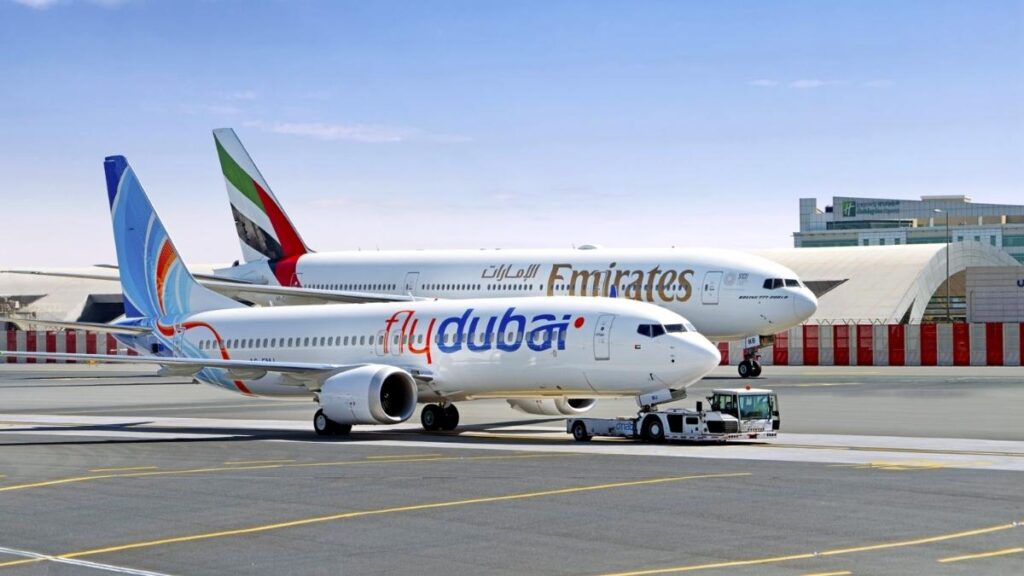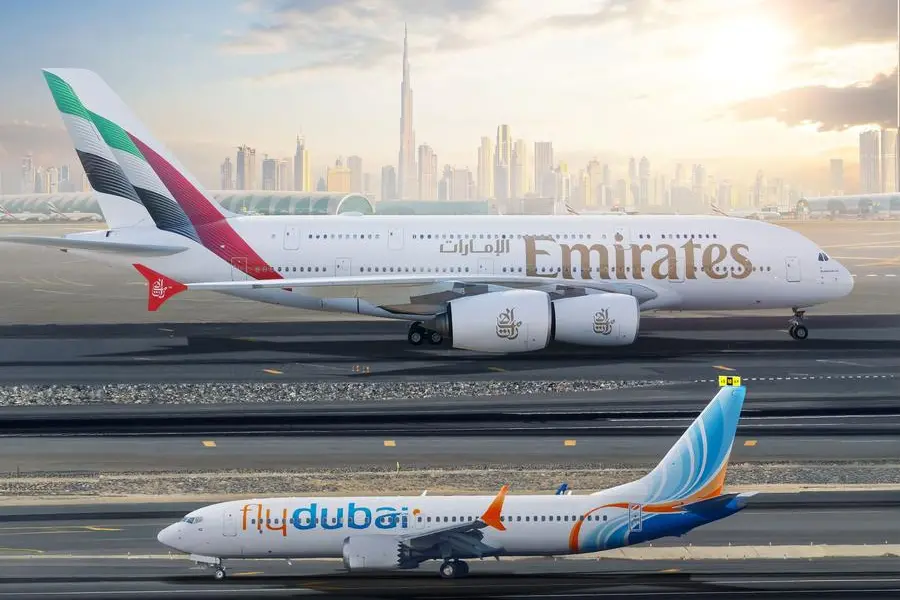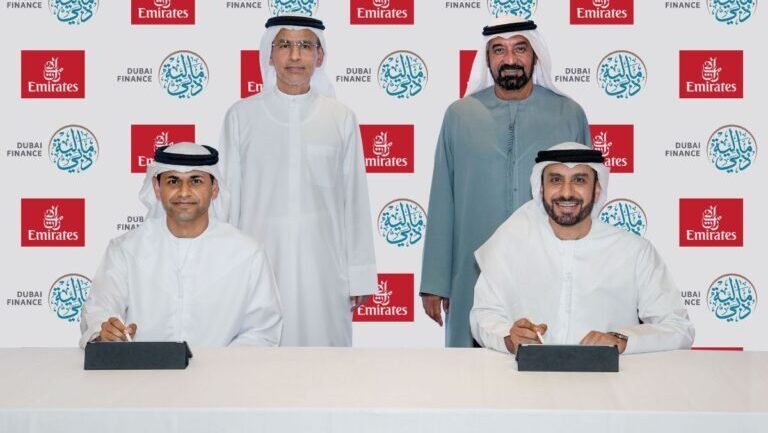Dubai Cashless Strategy is taking a major leap forward as Emirates and flydubai have signed agreements with Dubai Finance to accelerate the adoption of digital payments. This collaboration aims to reduce cash dependency in the emirate, streamline financial transactions, and provide a modern convenient experience for both residents and visitors.
Dubai’s ambitious plan seeks to make 90 percent of all transactions in the city cashless by 2026, a goal that aligns with global trends in digital transformation and financial innovation. With international tourism growing rapidly and the city emerging as a global business hub, this initiative comes at a critical time for Dubai’s economy.
Strengthening Dubai’s Digital Economy
Dubai has long positioned itself as a forward thinking city that embraces innovation. Over the years, it has invested heavily in technology infrastructure, smart city initiatives, and digital financial solutions. The signing of agreements between Emirates, flydubai, and Dubai Finance marks a significant milestone in the emirate’s journey toward a fully cashless economy.

Digital payments are no longer a convenience; they are becoming a necessity. From retail purchases and transportation fares to hotel bookings and dining experiences, digital transactions allow for faster, safer, and more efficient processes. By integrating digital payments across multiple sectors, Dubai is creating a seamless ecosystem where residents and tourists can move through their daily activities without the need for cash.
The involvement of leading airlines like Emirates and flydubai is particularly strategic. Airlines interact with millions of passengers daily, many of whom are international travelers. Encouraging digital payment adoption at this level helps familiarize visitors with cashless options, paving the way for broader acceptance across other sectors such as hospitality, retail, and entertainment.

Enhancing the Tourist Experience
Tourism is a cornerstone of Dubai’s economy. In recent years, millions of visitors have flocked to the city, drawn by its attractions, shopping, and luxury lifestyle. However, a significant portion of international tourists still rely on cash for transactions, which can create inefficiencies and inconvenience.
By introducing digital payment solutions through partnerships with major airlines, Dubai is making it easier for tourists to enjoy the city without worrying about cash exchange or carrying large sums of money. Mobile payment apps, contactless cards, and e wallets offer fast and secure alternatives to cash, reducing transaction time and enhancing the overall travel experience.
This initiative also benefits local businesses. Restaurants, shops, and entertainment venues can streamline their payment processes, reduce handling costs, and improve financial tracking. It ultimately creates a more modern, efficient economy where businesses can focus on providing quality service rather than managing cash transactions.
Public Private Collaboration
The success of Dubai’s Cashless Strategy depends on collaboration between government entities and private sector leaders. Dubai Finance, as the emirate’s financial regulator, is taking a proactive role in supporting this initiative by creating policies and frameworks that encourage digital payment adoption.
The engagement of Emirates and flydubai exemplifies how private companies can actively contribute to public policy goals. These airlines act as conduits for digital payment adoption, bringing new technologies and user friendly solutions to millions of passengers. Through education campaigns, promotional offers, and integration of digital wallets, airlines can drive adoption rates and make cashless transactions a standard part of the travel experience.
Public private partnerships like these also foster innovation. As companies work closely with government entities, they can test new payment technologies, explore blockchain based solutions, and integrate AI powered financial tools. This continuous innovation ensures that Dubai remains at the forefront of global digital finance.
UAE: A Safe and Stable Business Hub
While Dubai focuses on modernizing its financial infrastructure, it also maintains a strong reputation as a secure and stable environment for business. The UAE consistently ranks as one of the world’s safest business hubs, with low risks related to economic instability.
Only a small percentage of business leaders in the region view economic volatility as a significant threat. This stability, combined with the government’s proactive approach to economic policy and innovation, makes Dubai an attractive destination for international investors, businesses, and tourists.
For digital payment initiatives like the Dubai Cashless Strategy, this economic stability is crucial. Businesses are more likely to adopt new technologies when they have confidence in the regulatory environment and the overall security of their investments. Travelers, too, feel safer using digital payment systems when they trust the local infrastructure and financial regulations.

Aligning with Global Trends
The push for cashless economies is not unique to Dubai. Around the world, countries and cities are moving toward digital first payment ecosystems. Mobile payments, QR codes, contactless cards, and e wallets are becoming mainstream, transforming how people interact with money.
By adopting these trends early, Dubai positions itself as a global leader in digital finance. Tourists arriving from countries where cashless payments are already common will find familiar systems in place, while residents can enjoy faster, safer transactions. The city’s efforts also signal to investors and multinational companies that Dubai is open to innovation and ready to embrace future technologies.
Furthermore, the COVID 19 pandemic accelerated the global adoption of digital payments. Contactless solutions became preferred due to health concerns, reinforcing the importance of cashless ecosystems. Dubai’s proactive strategy ensures that the city remains resilient in the face of global challenges and continues to attract international visitors.
The Role of Airlines in Cashless Adoption
Airlines like Emirates and flydubai are uniquely positioned to influence payment behavior. Every ticket purchased, every onboard transaction, and every interaction with passengers offers an opportunity to encourage digital payments.
By integrating digital wallets, contactless cards, and mobile payment platforms into their services, these airlines can create a seamless experience for passengers. Imagine checking in using a mobile app, paying for baggage, purchasing duty free items, and ordering meals onboard all without using cash. This not only improves passenger convenience but also demonstrates the benefits of cashless transactions in real life scenarios.
Moreover, airlines can partner with banks and fintech companies to offer promotional campaigns, reward programs, and discounts for digital payment users. This creates incentives for travelers to adopt cashless solutions and fosters a culture of digital payment literacy.
Benefits Beyond Convenience
The advantages of a cashless economy extend beyond convenience. Digital payments provide enhanced security by reducing the risks associated with carrying cash. Transactions are recorded digitally, reducing the likelihood of fraud or theft.
Cashless systems also support better financial planning for both individuals and businesses. Spending habits can be tracked more accurately, helping households manage budgets and allowing companies to optimize operations. Governments benefit as well, with more transparent financial flows that simplify tax collection, reduce corruption, and improve public service delivery.
For Dubai, the shift to a cashless economy represents an opportunity to modernize financial infrastructure, improve service delivery, and attract more international tourists and investors.

Building a Cashless Culture
Adopting a cashless society requires more than just technology it demands a cultural shift. Dubai is actively promoting digital literacy and payment awareness among residents and visitors. Educational campaigns, workshops, and marketing initiatives inform people about the benefits of cashless transactions, security measures, and available tools.
This cultural shift is supported by businesses and government policies. By demonstrating reliability, efficiency, and safety, Dubai is encouraging people to embrace digital solutions willingly. The goal is not to eliminate cash overnight but to create a smooth transition that meets the needs of all users.
Future Outlook
Looking ahead, Dubai’s Cashless Strategy has the potential to transform the emirate into a model smart city. Beyond tourism and daily transactions, digital payments can integrate with other smart city services. Public transport, parking, healthcare, and utility payments can all be streamlined through a single digital ecosystem.
The collaboration between Emirates, flydubai, and Dubai Finance sets the stage for these future possibilities. As more sectors adopt cashless systems, Dubai will continue to enhance efficiency, security, and user experience. The initiative could also inspire other regions to replicate similar models, demonstrating how public private partnerships can accelerate digital transformation on a large scale.
Conclusion
The Dubai Cashless Strategy represents a bold step toward a modern, innovative, and digitally empowered economy. With Emirates and flydubai leading the way alongside Dubai Finance, the city is set to achieve its ambitious goal of 90 percent cashless transactions by 2026.
This initiative benefits residents, tourists, businesses, and the government alike. It enhances convenience, security, and financial transparency while fostering a culture of digital payment adoption. Dubai’s stable economic environment and forward looking policies further strengthen the case for a cashless economy.
By embracing digital payments, Dubai not only improves daily life for its people but also reinforces its position as a global hub for tourism, business, and innovation. The success of this initiative will likely serve as a benchmark for cities worldwide, showcasing how strategic collaborations and digital solutions can drive economic growth and modernize urban experiences.
Dubai is not just moving toward a cashless future it is shaping a smarter, safer, and more seamless world for residents and travelers alike.
Do follow UAE Stories on Instagram
Read Next – Ras Al Khaimah Real Estate Surge Hits $3.56B; UAE Leads Business Safety














